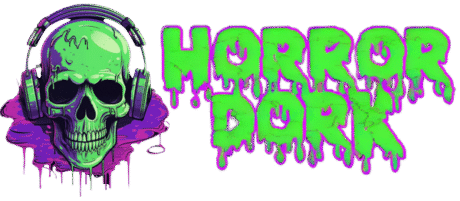Martin Landau wasn’t a “horror actor” in the way Vincent Price or even Christopher Lee was. But when he stepped into the genre, he elevated it. He brought depth, tragedy, and gravitas to every role, no matter how wild the premise.
Alone in the Dark (1982) — The Preacher with the Match
One of his best performances, at least for me, is as the preacher in Alone in the Dark (1982). That movie still sits near the top of my all-time favorites. I remember being a little kid, standing in the horror aisle, surrounded by those oversized VHS boxes that looked awestriking. And of all the covers screaming for attention, that one stopped me cold.
The box art showed the lower half of a maniac gripping a double bladed axe, standing outside a lonely house at night. Even without seeing a single frame, I knew I was looking at something dangerous. That preacher, righteous, unhinged, and pyromaniacal, was burned into my imagination.
It was the coolest box on the shelf, right up there with Night of the Creeps and Popcorn, among others.
The gist of Alone in the Dark, directed by Jack Sholder, a few years before he went on to helm A Nightmare on Elm Street 2: Freddy’s Revenge, is simple but brilliant. A family finds themselves trapped inside their home while four maniacs, freshly escaped from a mental institution, close in from the dark outside.
It’s a powerhouse ensemble for early ’80s horror: Jack Palance brooding and unpredictable, Donald Pleasence once again playing a doctor teetering on madness. But this time his insanity feels different, more utilitarian than the totalitarian streak he gave Dr. Loomis in Halloween. Pleasence’s character here isn’t trying to control evil; he’s trying to understand it, which somehow makes him even creepier.
And Landau, as “Preacher,” steals every scene he’s in. His fiery sermons and manic intensity elevate the film beyond its grindhouse setup. There’s a haunted intelligence in his performance, you can tell this was an actor treating the material seriously, no matter how wild it got.
There’s also a diner dream sequence between Pleasence and Landau that deserves its own conversation. It’s one of those quiet, eerie moments where two great actors lock in and you can feel the chemistry humming beneath the madness. I wish we’d gotten to see more of that dynamic explored, because it’s a glimpse of the movie that might have been if these two had shared more screen time.
That’s what separated Martin Landau from the pack. He didn’t just act in horror; he gave it weight. He made it feel like madness could have meaning.
Ed Wood (1994) — The Resurrection of Bela
The other film worth mentioning is Ed Wood (1994), and Landau beyond delivers in it. He completely embodies the deceased persona of Bela Lugosi. You get so lost in his performance you’d swear you were actually watching Bela himself.
For a brief moment in time, while that movie was being shot, t’s like that old Bauhaus song, Bela Lugosi’s Dead, was discredited. Lugosi lived again.
Johnny Depp does a fine job as Ed Wood, but his performance always felt a bit too forced for me, almost cartoonish. It’s not that he acted poorly; it just didn’t feel like Ed Wood. Landau, on the other hand, disappears into Lugosi completely.
And even if I wanted to play devil’s advocate and argue that Landau’s performance wasn’t great, I couldn’t, because the man won an Oscar for it. Best Supporting Actor in 1995, beating out a lineup of absolute heavyweights: Chazz Palminteri (Bullets Over Broadway), Paul Scofield (Quiz Show), Gary Sinise (Forrest Gump), and Samuel L. Jackson as Jules Winnfield in Pulp Fiction. That’s no small feat.
It proves what I’ve always thought: Martin Landau wasn’t a “horror guy” like Boris Karloff or Vincent Price, but when he did step into the genre, he made it count. He brought dignity, sadness, and depth where other actors might have gone campy.
Honorable mentions: his time travel tragedy The Man Who Was Never Born from The Outer Limits, the gooey creature flick The Being, the haunting psychological story The Haunted Airman opposite a young Robert Pattinson, the ambitious Frankenstein: The True Story from the 1970s, and his multiple appearances on The Twilight Zone.
All worth checking out, but a quick note on Frankenstein: The True Story: it’s a 1973 TV miniseries, not a theatrical movie. Think of it as a beautifully gothic, slow burn retelling that leans more into drama and tragedy than shock. If you go in expecting Universal style monsters, you’ll be surprised, but if you love classic gothic storytelling, it’s absolutely worth your time.
